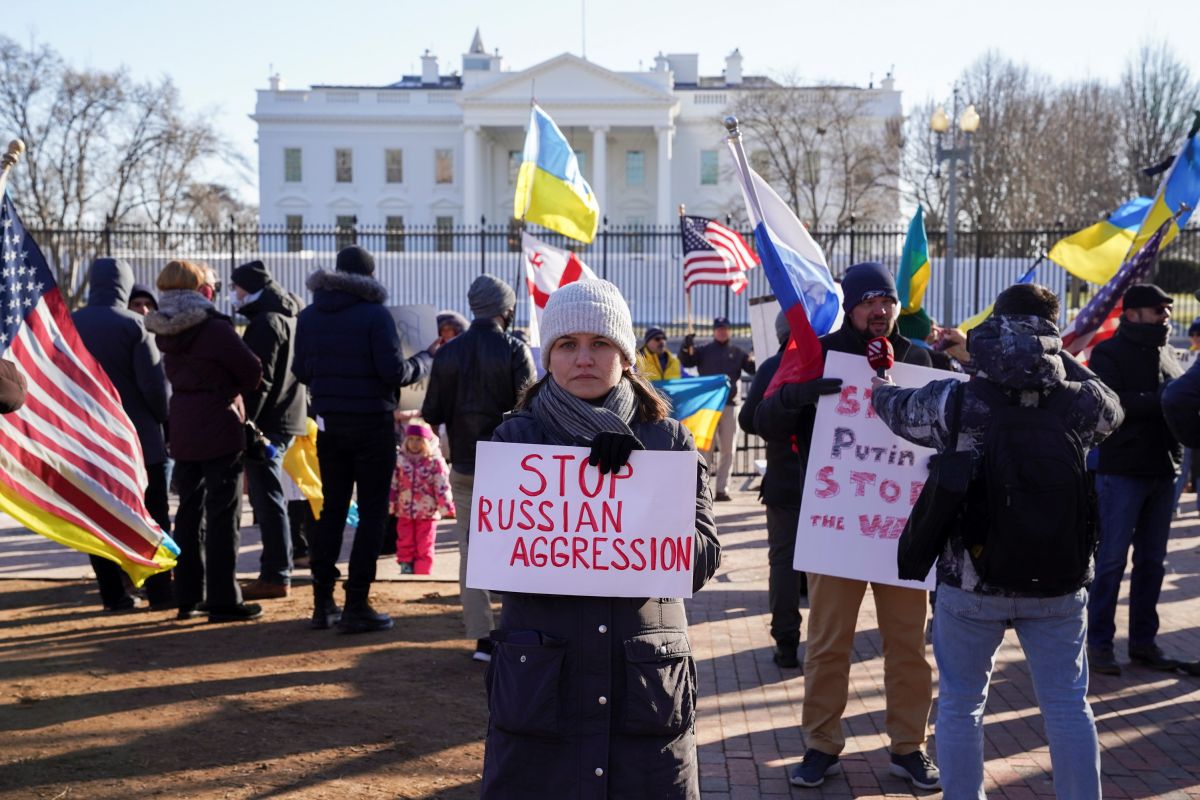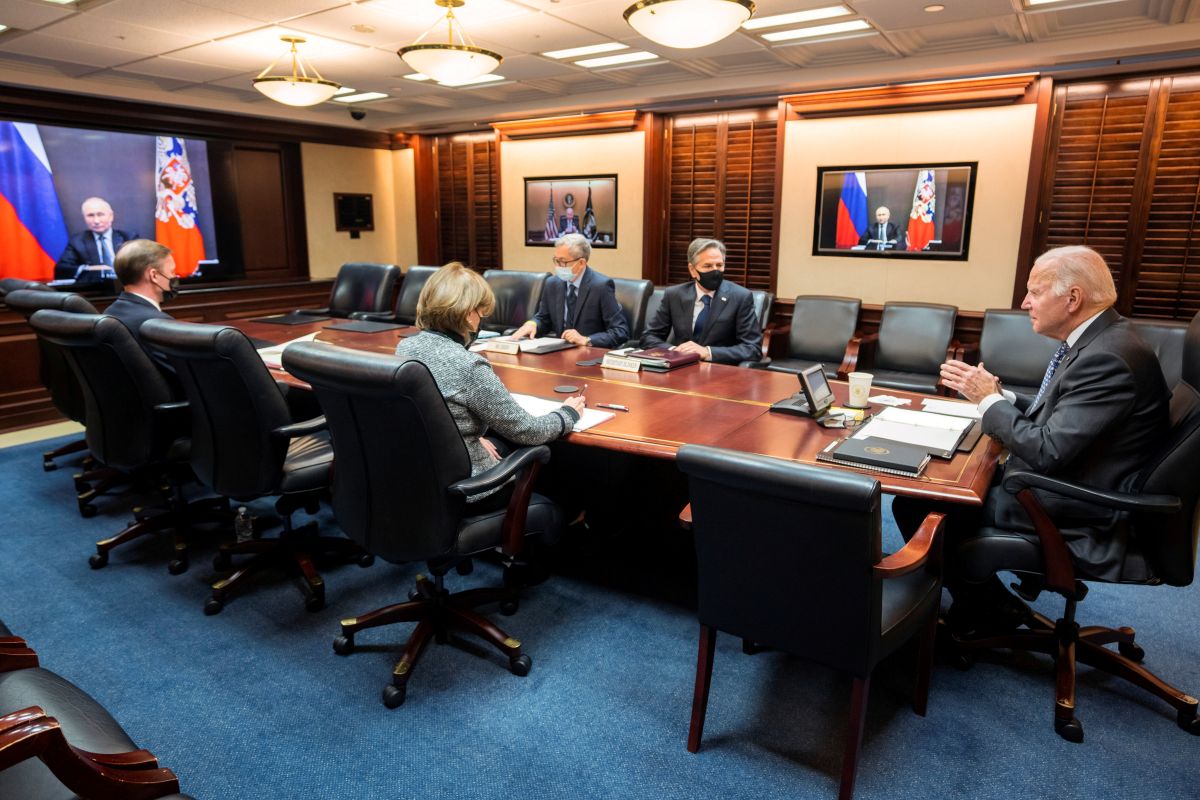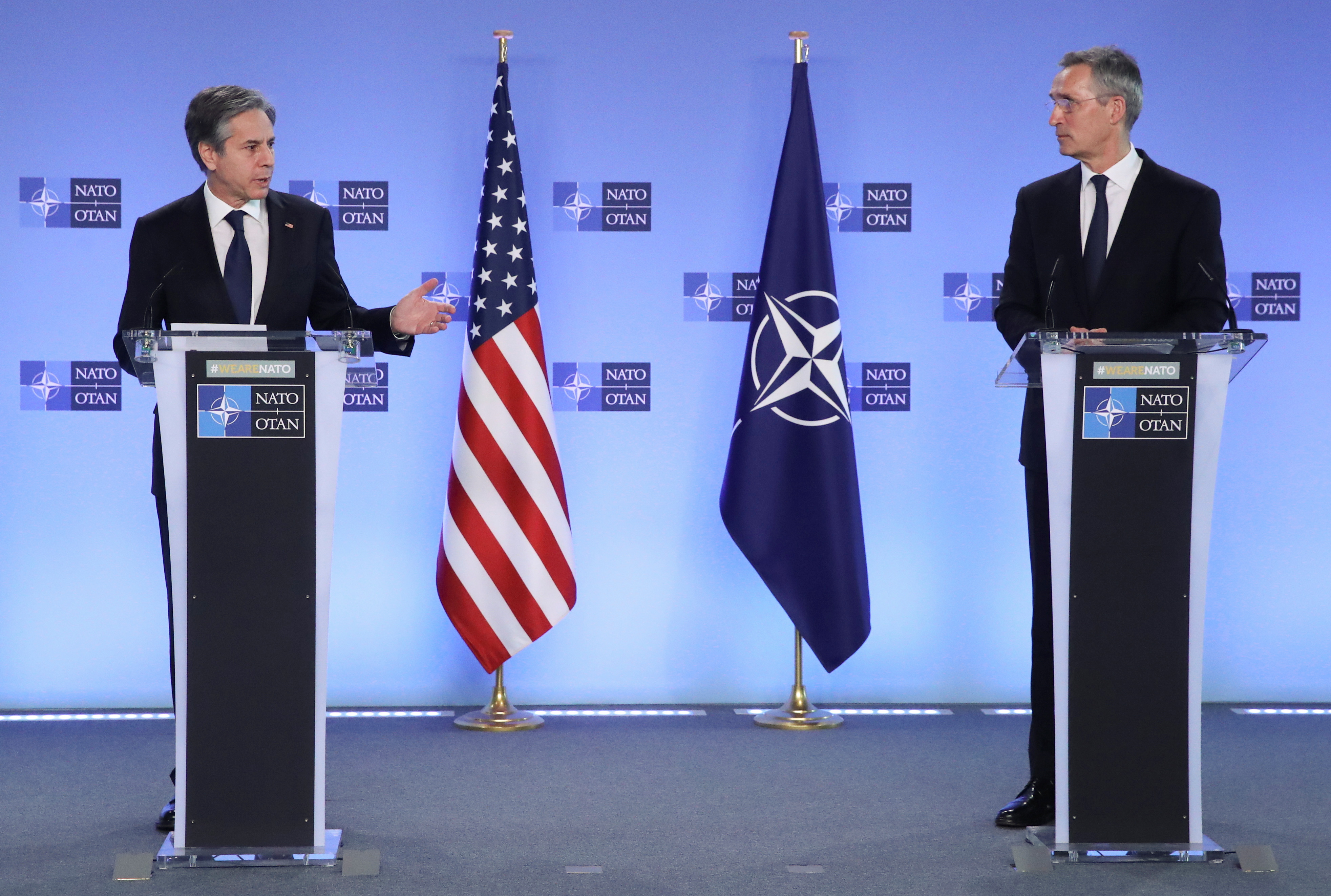Support for Ukraine in the American Political Debate
The growing threat of new Russian aggression has raised the importance of the support for Ukraine in the American political debate. The Biden administration has decided to increase military support for Ukraine, a decision which is supported by most Democrats and Republicans. However, pressure is growing in Congress to further strengthen Ukraine and implement tools to immediately impose sanctions on Russia in the event of a new attack. At the same time, there are voices in both parties warning against American involvement in this crisis. If those views grow more popular, that may hinder the political debate about the U.S. involvement in European security.
 Fot. Reuters/ SHURAN HUANG/ FORUM
Fot. Reuters/ SHURAN HUANG/ FORUM
Biden Administration Policy Towards Ukraine
After assuming office in January 2021, Joe Biden maintained military aid to Ukraine ($250 million, increased by Congress to $300 million) and consistently emphasised his support for that country’s territorial integrity. At the same time, the administration put the emphasis on the fight against corruption and money laundering as well as on reform of the judiciary in Ukraine. The low level of activity towards Ukraine in the first months of the presidency was perceived as a result of an attempt to stabilise U.S.-Russia relations. The Biden administration perceived that stronger support for Ukraine at that time might not have served this purpose. However, in response to Russia’s renewed aggressive stance, the administration has gradually changed its approach to Ukraine to a more resolute and unambiguous one. In 2021, the U.S. provided additional military aid (including anti-tank Javelin launchers and missiles) worth a total of around $650 million throughout the year. Secretary of State Antony Blinken and his deputies Victoria Nuland and Karen Donfried visited Ukraine, as did Secretary of Defense Lloyd Austin. Since the end of 2021 when Russia began to gather large numbers of forces at the Ukrainian borders, the U.S. has been constantly consulting its policy with Ukraine. At the same time, Biden remains cautious in his rhetoric and declares the U.S. will not send troops to Ukraine but maintains his support for its efforts to join NATO. He also decided not to introduce new sanctions against Russia now, threatening instead to impose them in the event of new direct Russian aggression against Ukraine.
Republicans and the Tensions in Europe
Most members of the Republican Party, including the leader of the Senate opposition, Mitch McConnell, Senators Jim Risch and Ted Cruz, and representatives Michael McCaul, Mike Turner, Steve Cohen, and Brian Fitzpatrick, call on the Biden administration to more resolutely support Ukraine and impose sanctions on Russia. This is in line with their usual stricter approach to Russia than the Democrats but also as part of their general opposition to the president from the rival party. In their opinion, the diplomatic process initiated by the virtual meeting between Biden and Russian President Vladimir Putin has not yielded results and more decisive actions are needed. They urge the administration to send more weapons to strengthen Ukraine’s defence capabilities, including additional Javelins, as well as Stinger anti-aircraft launchers and missiles, anti-ship missiles, and drones. They are also trying to persuade Biden to strengthen the U.S. military presence in the Black Sea Basin and in the countries of NATO’s Eastern Flank (the decision to temporarily deploy additional troops to Germany, Poland, and Romania was received positively). Extreme voices, such as Rep. Mike Gallagher, even call for sending American troops to Ukraine, although this idea lacks broader political and public support. Most Republicans support instead the imposition of sanctions against Russia preceding a possible attack on Ukraine and targeting, among others, the Nord Stream 2 pipeline and the energy sector. Some of them are looking for a compromise with the Democrats who control both chambers of Congress.
However, a group of far-right Trump supporters has also emerged among the Republicans and is openly opposing support for Ukraine, including its potential accession to NATO. They justify their approach by the need to focus on internal U.S. issues, such as migration on the Mexican border (e.g., Reps. Paul Gosar and Matt Rosendale) or what they see as the more important challenge in international politics, China (Sen. Josh Hawley). These attitudes are sometimes fuelled by conspiracy theories, such as one about alleged ties between Ukraine and the president’s son, Hunter Biden, which Trump tried to make into a scandal in 2019 (led by Rep. Marjorie Taylor Greene). The former president stated that if he was still president there would be no Russia-Ukraine crisis, and he criticised Biden’s decision to put 8,500 soldiers on heightened alert, alleging they would be better used to defend the border with Mexico.
Democratic Majority and Ukraine
Most Democrats support Biden’s policy on Ukraine and do not try to publicly undermine it (including the main leaders, Speaker of the House Nancy Pelosi and Senate Majority Leader Chuck Schumer). However, Russia’s continued escalation means that some in the Democratic Party are stating with greater conviction that more decisive action is needed (e.g., Sens. Bob Menendez, Jack Reed, Jeanne Shaheen, and Reps. Gregory Meeks, Seth Moulton, and Ruben Gallego). They are cooperating with the Republicans on the issue. In recent weeks, two congressional delegations visited Ukraine, including representatives of both parties. Democrats and Republicans have been cooperating for several weeks on a draft bill on support for Ukraine and deterrence of Russia. The law would authorise immediate military aid to Ukraine in the amount of $500 million and strengthening its capacity to counter Russian disinformation and increase its cyberdefences. Moreover, it would impose an unprecedented package of sanctions on Russia if it decided to attack Ukraine. It would include personal sanctions against the president, prime minister, ministers of foreign affairs and defence, and commanders of branches of the Russian armed forces. The draft law also includes economic sanctions in the financial, extraction, and energy sectors, bans on transactions involving Russian sovereign debt, and termination of the provisions of specialised financial transaction services. In total, 42 of the 50 senators of the Democratic Party have signed on to the Menendez project.
However, some left-wing progressive Democrats believe that the key to easing the situation in Europe remains U.S. diplomatic involvement in bilateral and multilateral relations. They are opposed to covering Russia with pre-emptive sanctions, seeing them as contradictory to de-escalation and military measures, whether military support or sending U.S. troops, as unconstructive for solving the crisis (Rep. Alexandria Ocasio-Cortez, Pramila Jayapal, Ro Khanna).
Conclusions and perspectives
The Biden administration will not decide to make any concessions that are detrimental to the security of European countries, including actions that will weaken NATO’s declaration on maintaining the open-door policy for Ukraine. This is confirmed by the U.S. written response to the recent Russian demands. Any signal that could be interpreted as such would significantly undermine Biden’s credibility. He would then be considered a weak president, turning away from the common values and principles regarding security in Europe developed in the 1990s and consolidated since 2014. In the eyes of the American public and international public opinion, the response to the escalation triggered by Russia is also a test of American leadership after the chaos of the fall of Afghanistan. Therefore, the U.S. urging Ukraine to fully implement the Minsk-2 Agreement without forcing mutual actions on the part of Russia would be negatively received in the U.S., and the possible reduction of the presence of U.S. troops in Europe within NATO (even if it resulted from restrictions agreed with Russia) would most likely be negatively received and criticised by the majority of politicians from both major parties.
The current U.S. policy is beneficial for the security of European countries but may change in the medium term. The voices of progressive Democrats about military non-alignment are an expression of their consistent stance in which they call for the U.S. to seek solutions to crises only through diplomacy and not through the use of military instruments. Due to their general drive to limit the international use of armed forces, the progressives may start to press for limiting U.S. military involvement in the European security system. Similar concerns are raised among Republicans supporting Trump, who point to the greater importance of domestic factors and threat from China to the U.S. While it is unlikely that progressives and far-right Republicans will seek cooperation, as these trends increase in the years to come, they may constitute an important group that hinders the debate on U.S. military involvement in Europe.




_sm.jpg)
